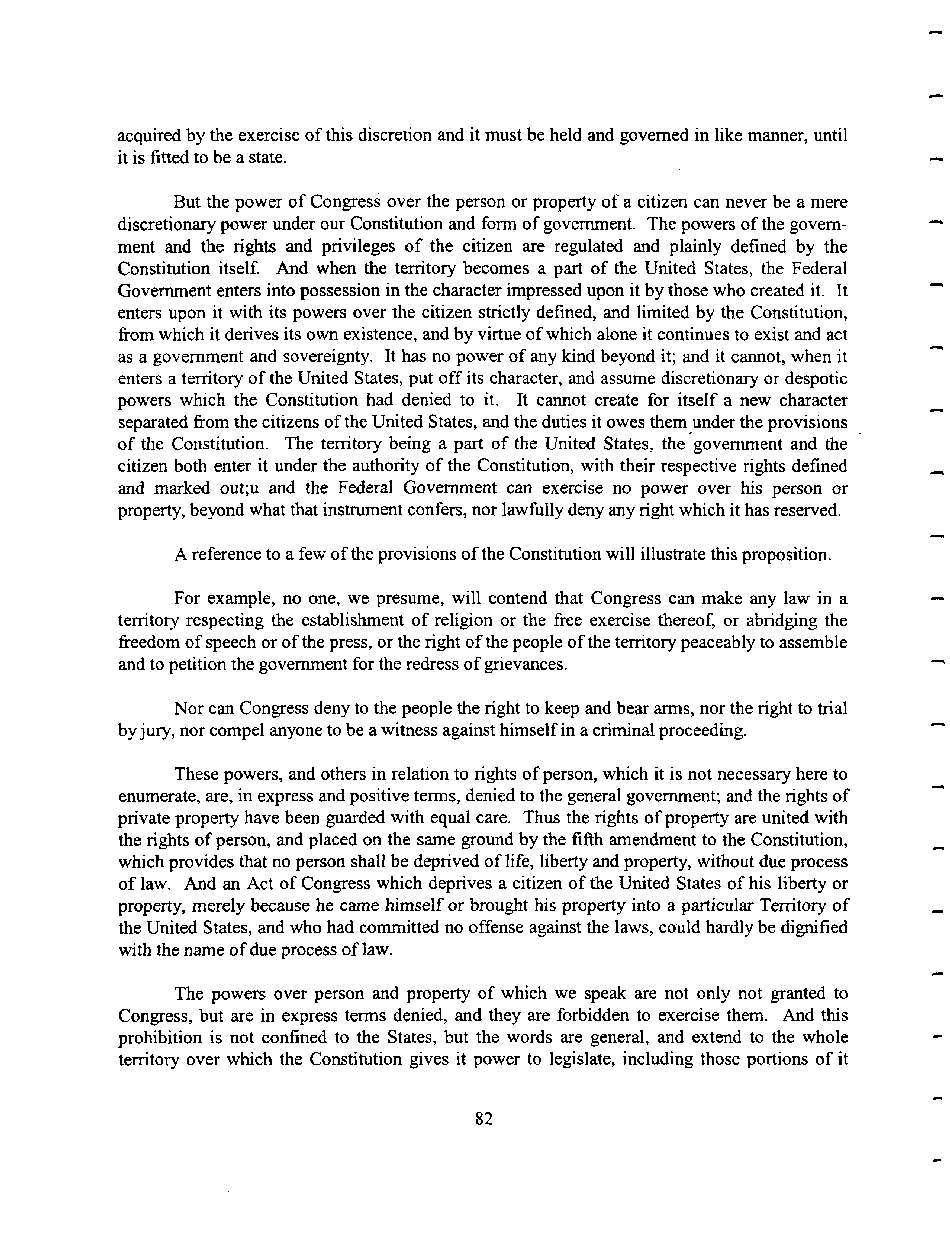|
acquired by the exercise of this discretion and it must be held and governed in like manner, until
it is fitted to be a state.
But the power of Congress over the person or property of a citizen can never be a mere
discretionary power under our Constitution and form of government. The powers of the govern-
ment and the rights and privileges of the citizen are regulated and plainly defined by the
Constitution itself. And when the territory becomes a part of the United States, the Federal
Government enters into possession in the character impressed upon it by those who created it. It
enters upon it with its powers over the citizen strictly defined, and limited by the Constitution,
from which it derives its own existence, and by virtue of which alone it continues to exist and act
as a government and sovereignty. It has no power of any kind beyond it; and it cannot, when it
enters a territory of the United States, put off its character, and assume discretionary or despotic
powers which the Constitution had denied to it. It cannot create for itself a new character
separated from the citizens of the United States, and the duties it owes them under the provisions
of the Constitution. The territory being a part of the United States, the government and the
citizen both enter it under the authority of the Constitution, with their respective rights defined
and marked out;u and the Federal Government can exercise no power over his person or
property, beyond what that instrument confers, nor lawfully deny any right which it has reserved.
A reference to a few of the provisions of the Constitution will illustrate this proposition.
For example, no one, we presume, will contend that Congress can make any law in a
territory respecting the establishment of religion or the free exercise thereof, or abridging the
freedom of speech or of the press, or the right of the people of the territory peaceably to assemble
and to petition the government for the redress of grievances.
Nor can Congress deny to the people the right to keep and bear arms, nor the right to trial
by jury, nor compel anyone to be a witness against himself in a criminal proceeding.
These powers, and others in relation to rights of person, which it is not necessary here to
enumerate, are, in express and positive terms, denied to the general government; and the rights of
private property have been guarded with equal care. Thus the rights of property are united with
the rights of person, and placed on the same ground by the fifth amendment to the Constitution,
which provides that no person shall be deprived of life, liberty and property, without due process
of law. And an Act of Congress which deprives a citizen of the United States of his liberty or
property, merely because he came himself or brought his property into a particular Territory of
the United States, and who had committed no offense against the laws, could hardly be dignified
with the name of due process of law.
The powers over person and property of which we speak are not only not granted to
Congress, but are in express terms denied, and they are forbidden to exercise them. And this
prohibition is not confined to the States, but the words are general, and extend to the whole
territory over which the Constitution gives it power to legislate, including those portions of it
82
�
|

